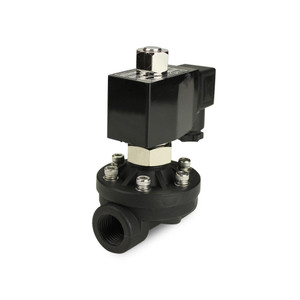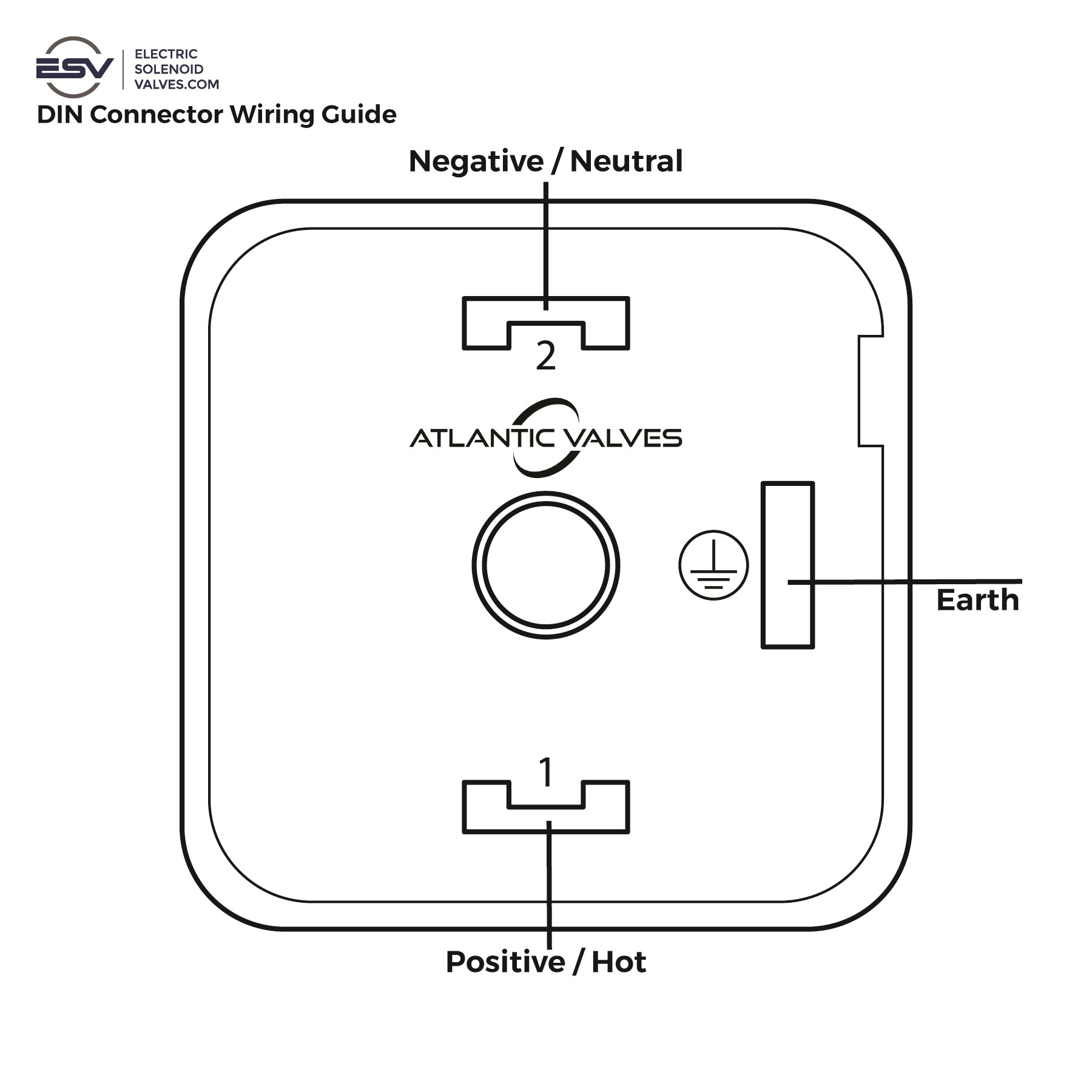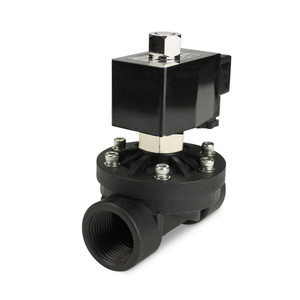
1-1/2" Plastic Zero Differential Solenoid Valve N/O
Technical Details
Product Overview
Atlantic Valve’s PSL-40K is a 1-1/2” Zero-Differential, Normally Open, 2-way electric solenoid valve. This means that this valve will remain in the open position until power is applied to the coil, once power is applied the coil will push down the plunger which in turn pushes the diaphragm downwards closing the valve and preventing flow. This is a 2-way valve meaning it has 2 ports (an inlet and an outlet) and as with most semi-direct solenoid valves this valve functions in one direction as indicated with an arrow molded into the valve’s body. While this valve does not require differential pressure to work properly, it cannot function as intended if pressure is in the opposite direction indicated by the flow arrow.
PA 66 is a heavy-duty nylon plastic engineered to have great strength and chemical resistance. It is also a completely lead-free material making this valve an affordable replacement for stainless steel valves in food-grade and potable water applications. This valve boasts a 40 mm orifice and a Cv rating of 30 and requires zero-pressure differential enabling it to perform excellently in gravity feed situations. Manufactured with an EPDM seal this valve can withstand a wider range of temperature and pressure than NBR or Viton equivalent. This material is also far more durable and resistant against abrasion. This valve is rated for 15 to 250° F.
This valve is configured with our 210, high-performance coils available in 5 different voltages. These coils are rated for over 70,000 cycles in laboratory conditions and close in an instant (less than one second). The 210 coils have an increased enclosure rating of IP65 or NEMA 4 waterproof level making it great for indoor or outdoor use and an H Class Insulation Rating. This coil is fit with a DIN 43650A connector enabling wires to be attached from your power source internally into the coil.
A pre-filter is recommended to keep the diaphragm free from debris and the valve functioning properly.
*Consult a chemical compatibility expert for correct seal and valve body material choice.
Wiring Instructions:
- Loosen and remove the Phillips-head screw securing the DIN connector to the coil.
- Detach the DIN connector from the coil.
- Open the DIN connector housing by prying at the small slot located in the bottom corner next to the Earth terminal.
- Inside the housing, locate the screw terminals:
- Terminal 1: Connect the hot or positive wire.
- Terminal 2: Connect the neutral or negative wire.
- Earth Terminal (for AC voltages only): Connect the ground or Earth wire.
- Ensure all screw terminals are securely tightened for a reliable connection.
- Reassemble the DIN connector by reversing the steps above.












